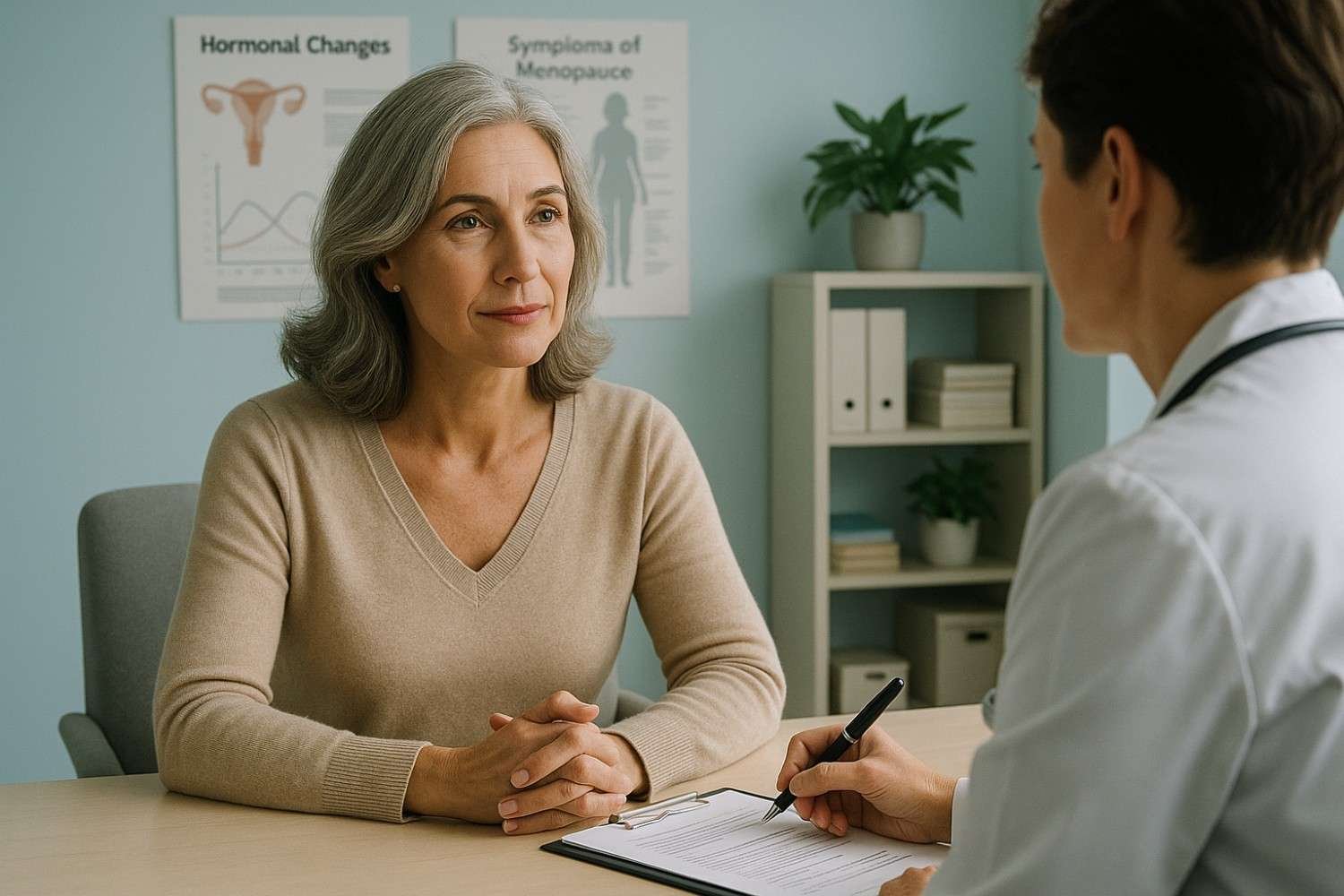Navigating the world of menopause can feel like trying to find your way through a maze of confusing and often contradictory information. From well-meaning friends to late-night internet searches, women are bombarded with advice, much of which is outdated, misleading, or simply untrue. This confusion can lead to unnecessary anxiety and prevent women from seeking the effective, evidence-based care they deserve.
As a menopause specialist, my goal is to replace that confusion with clarity. Let’s cut through the noise and debunk five of the most common myths I hear in my practice, so you can approach your midlife journey armed with facts, not fiction.
Myth #1: Menopause Starts at 50.
The Fact: While the average age of a woman’s final menstrual period is around 51 in the UK, the journey of menopause begins much, much earlier. The transitional phase, known as perimenopause, can start in your late 30s or early 40s. This is the period where your hormones begin to fluctuate, leading to the first signs of change like irregular periods, new or worsening PMS, sleep disturbances, and mood swings. Many women are in the thick of this transition for years before they officially reach menopause, often without realizing the root cause of their symptoms.
Myth #2: HRT is Dangerous and Should Be Avoided.
The Fact: This is perhaps the most damaging myth, stemming from a single, widely-publicized study from over 20 years ago. Medical science has advanced significantly since then. For the vast majority of healthy women under the age of 60, modern, body-identical Hormone Replacement Therapy (HRT) is a safe and highly effective treatment. The current evidence is clear: for most, the benefits of symptom relief and long-term protection for bone and heart health far outweigh the risks. A consultation with a menopause specialist is the best way to assess your personal risk profile and understand if modern HRT is the right choice for you.
Myth #3: Weight Gain is Inevitable and Unmanageable.
The Fact: It’s true that your body’s metabolism slows and your fat storage patterns change during menopause, making weight gain—especially around the abdomen—a common challenge. But it is far from inevitable or unmanageable. The old rules of “eat less, move more” often stop working because your body’s hormonal and metabolic landscape has changed. The key is to adopt a new strategy: one that prioritizes protein to protect muscle mass, incorporates strength training to boost your metabolism, and manages stress to lower cortisol levels. It’s not about a lack of willpower; it’s about a lack of the right strategy.
Myth #4: Vaginal Dryness and Painful Sex are Just Part of Getting Older.
The Fact: This is absolutely untrue. These symptoms are part of a treatable medical condition called Genitourinary Syndrome of Menopause (GSM). The loss of estrogen causes the tissues of the vagina and urinary tract to become thinner, less elastic, and drier. Unlike hot flashes, these symptoms tend to worsen over time if left untreated. However, they are highly treatable with safe, effective, and low-dose localized vaginal estrogen therapies that restore comfort and intimacy. You do not have to live with this discomfort.
Myth #5: You Just Have to “Power Through” Your Symptoms.
The Fact: This is perhaps the most disempowering myth of all. Menopause symptoms are not a test of your strength or a character flaw you must endure. They are the real, physiological results of a significant hormonal shift in your body. Hot flashes, insomnia, anxiety, and brain fog are all treatable medical symptoms. Just as you would seek treatment for a thyroid issue or diabetes, you deserve expert medical care to manage your menopause transition.
Conclusion: Knowledge is Power
Your menopause journey is a unique and personal one, but you should not have to navigate it in the dark. By separating fact from fiction, you can make informed, empowered decisions about your health. If you are struggling with symptoms or simply want to understand your options, please know that effective, evidence-based support is available.







